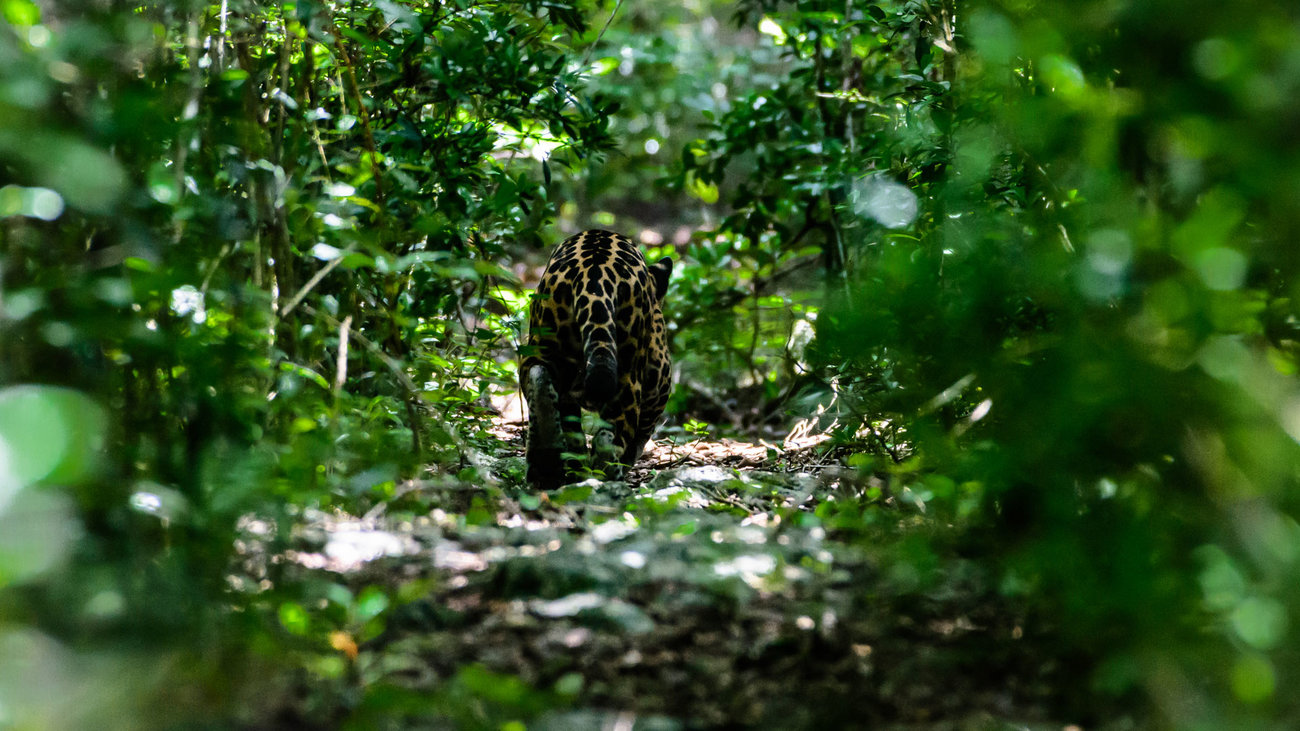Polen Cisneros
Operation Jaguar trainings in Guyana lay foundation to protect wildlife
Operation Jaguar trainings in Guyana lay foundation to protect wildlife

In recent years, several countries in South America have seen a sharp increase in jaguar poaching as their fangs, skin, and other body parts are traded and used to make ornaments or “medicinal” products for markets in Asia. Operation Jaguar is a three-year joint project by IUCN NL, IFAW, and Earth League International, made possible by the Dutch Postcode Lottery. The project aims to tackle jaguar poaching and trafficking in Bolivia, Suriname, and Guyana.
Within this project, IFAW is responsible for building capacity in these countries through training programs to tackle the illegal trafficking of jaguar parts and other wildlife crimes. By empowering key law enforcement agencies and encouraging prosecutors and judges to enforce wildlife laws, we can help protect this iconic species.
Hosting the first training in Guyana
Back in December 2019, we travelled to Guyana to co-host IFAW’s first law enforcement training for Operation Jaguar. Led by the Guyana Wildlife Conservation and Management Commission (GWCMC), we held a five-day wildlife enforcement training in Georgetown. We taught participants a wide range of wildlife crime prevention techniques to help improve the baseline level of law enforcement capacity, raise awareness, and spark interest among law enforcement agencies to carry out efficient wildlife crimes investigations.
The training included information on how to identify common species traded in the region, check if wildlife trading permits are legitimate, detect smuggled wildlife, and uphold protocols for the management and welfare of seized animals. Participants also learned to collaborate and support each other across agencies and jurisdictions – a key component in disrupting wildlife crime.
The training was a resounding success. We saw participation from seven agencies, including the Guyana Police Force (GPF), Guyana Defense Force (GDF), Guyana Livestock Development Authority (GLDA), Corps of Wardens – Ministry of Natural Resources (MNR), Cheddi Jagan International Airport – Training Personnel (CJIA), Customs Anti-Narcotics Unit (CANU), and GWMCM. The participants showed a demonstrable increase in knowledge of information regarding the Convention on International Trade in Endangered Species (CITES), managing evidence from crime scenes, and overseeing the welfare of species from their pre-assessment to their post-assessment evaluations.
Seeing real impact for jaguars and wildlife
A few months after our training, the GWCMC got in touch to deliver some fantastic news. The training we provided in December helped facilitate their plans to carry out a sensitization project for other agencies and communities across Guyana. The GWCMC completed a series of training for several different communities, police stations, and customs checkpoints. We were also excited to hear that in coordination with the GFP, the GWCMC made its first joint arrest concerning the killing of a wild ocelot. Although the case was dropped, it represents a small but notable change in the level of interagency cooperation, which will ultimately have a huge impact on stopping wildlife crime. The GWCMC also notified us that the GPF is planning to integrate an educational module on wildlife crime into their internal police training in the future.
Pushing forward despite challenges from COVID-19
Following this success, we were excited to resume our judiciary sensitization training in 2020, but then the COVID-19 pandemic hit. Luckily, we were able to continue our work despite international quarantine mandates.
In October, we carried out a virtual judiciary workshop. In coordination with the GWCMC, the two-day virtual workshop provided selected prosecutors and magistrates with the knowledge and training materials that investigators and legal professionals need to tackle crimes against jaguars and other wildlife.
We covered a wide range of critical skills like investigative strategies and evidence collection, interviewing and working with witnesses, utilizing non-wildlife laws to prosecute wildlife offenders, and the importance of preserving ethics. The course also included a practical exercise for participants to gain exposure to different types of wildlife crime and provided advice and best practices on how to build a prosecution case.
Even though we had to adapt our plans due to COVID-19, the training was a success. We had participants attend from the GWCMC, GPF, Chambers of the Director of Public Prosecutions, and members of the Judiciary – including the Chief Magistrate. The workshop also allowed the GWCMC to lay a solid foundation for interagency cooperation and encourage magistrates to prioritize wildlife crime cases among their other caseloads.
To date, the trainings we hosted in partnership with the GWCMC in Guyana have been incredibly positive. We know that the success of Operation Jaguar depends on the participation and commitment from a wide range of groups, and we were pleased to see so many agencies engaged. Following our recent work with the GWCMC, we have been invited to work with them again to help develop a national strategy to combat wildlife trade in Guyana. We will continue our training in Suriname and Bolivia as part of this joint effort to ensure the protection and long-term survival of jaguars.
-Polen Cisneros, IFAW Wildlife Crime, Program Officer
Related content
Every problem has a solution, every solution needs support.
The problems we face are urgent, complicated and resistant to change. Real solutions demand creativity, hard work and involvement from people like you.